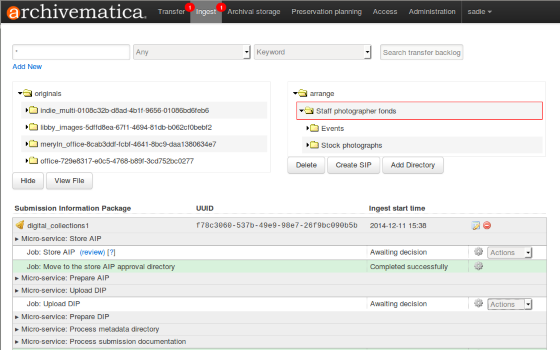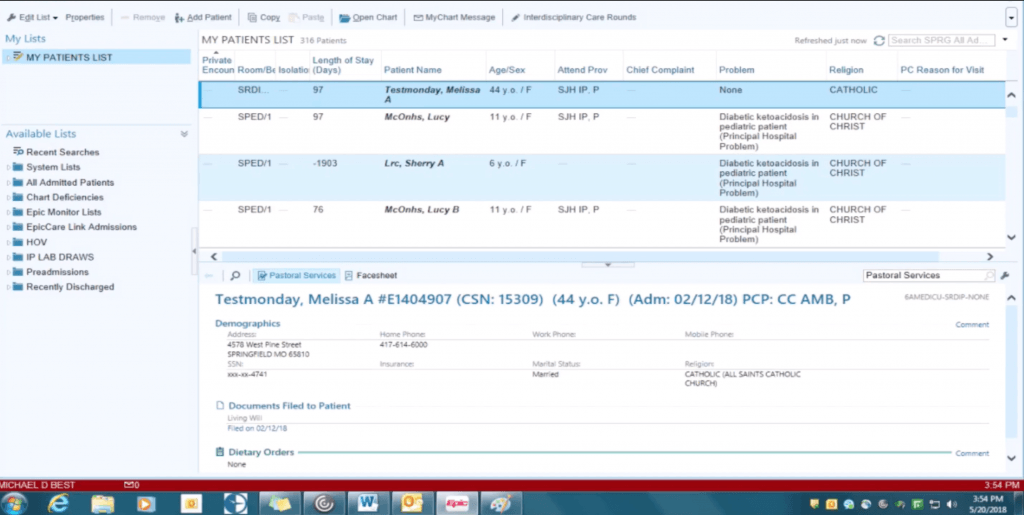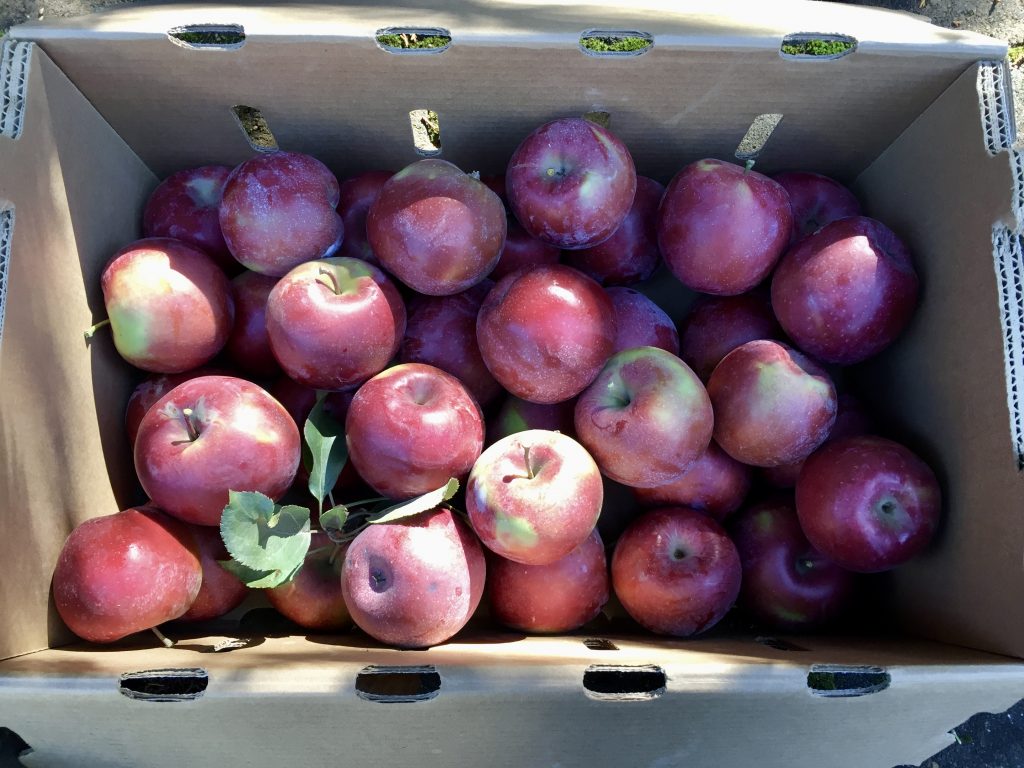Post by Christina Mantey
This post is the fourth in a series of five blog posts written by Christina Mantey, a research assistant on the Conceptualizing Recordkeeping as Grief Work (CRAGW) project. Christina has an interesting perspective on the emotional (and sometimes trauma-related) dimensions of archival work, having come to the field from a career in nursing. This series of blog posts is a personal account of her work as a research assistant with the CRAGW project and of her journey as a second-career archival graduate student.
Part 1: “Archiving Hurts”: How to Succeed and Fail in School
Part 2: “Archiving Hurts”: Hospital Adventures
Part 3: “Archiving Hurts”: Past Traumas, Future Traumas
Part 4: The Fruits of Our Labour
At the close of the spring term of 2020, I was hired as a research assistant by Dr. Jennifer Douglas for her work on the emotional elements of archival practice. In this undertaking, I studied interviews that Dr. Douglas and her research team had conducted with archivists in which they explored how emotions and interpersonal relations affected their careers as archivists. I coded these interviews, identifying recurring themes and discussing these themes with my colleagues.
As I combed through the transcripts, I was struck by how often these accounts echoed the discontent I had felt in my previous nursing career. This was unexpected. I anticipated discussion of records, donors, fonds, and the like. Archivist Language. The language I was learning in school but was not my native tongue or even my second language. (I’d rather try to relearn some of my undergrad Ancient Greek than revisit diplomatics (Sorry, Professor Duranti.)) There was certainly Archivist Language in the interviews, but to my surprise, the participating archivists also discussed situations familiar to me and feelings I identified with deeply. Reading these responses was jarring but heartwarming, like finding out your reclusive neighbour also agrees that clogs are the best kind of shoe. I was anticipating foreignness but encountered fellowship.
To illustrate, one common theme amongst many of the interviews was the sentiment that the archivists’ professional education had not prepared them for — or ever really discussed — the emotional or interpersonal side of archival work. Because of this omission, respondents felt unequipped to deal with the strong emotions that inevitably surface in the archives, such as an angry or crying client.
I could empathize. In my nursing degree, we had “active listening” training for how to talk with patients so that they felt heard and comfortable sharing their full medical and emotional experience. I used this training constantly while working, and it has continued to serve me in encouraging meaningful conversations. However, I did not have any training for — nor do I recall the mention of — how to deal with verbal abuse from patients and patient’s families. The lack of any indication that these interactions might occur added shock to the already painful encounters. I can imagine that many archivists may have felt similarly: if you expected your days to be dedicated to sifting through records alone in a basement, a patron sobbing or shouting at you would be upsetting, especially if you had to then handle the situation without training or resources. A participant described their experience interacting with frustrated patrons:
“… they get angry at some of our policies, and the legislation, and then they take it out on the archivist. Which is understandable. It’s kind of inexcusable, but it’s understandable… And I think that we don’t—as a profession, we don’t really talk about how to deal with that… that much. How to deal with people in a compassionate way.”
This statement could also be said of the patient-medical staff relationship. If one feels hurt and vulnerable and someone in authority tells them something they don’t want to hear, they might say things that perhaps are not warranted. It’s not nice for the person on the wrong end of the outburst, but it’s a human reaction and, unfortunately, it happens. As one who has experienced these kinds of interactions in the workplace, I wish my education had prepared me for this eventuality. This was a sentiment shared by several contributors to this research. As this participant noted, an issue seems to lie in the lack of discussion or training and resources available to those who feel the force of this anger.
Another common issue that archivists encountered was frustration with the expectation that they serve more roles than they have the capacity for; for example, understanding and implementing archival software, helping researchers with complicated and emotionally involved requests, and the conservation of various archival materials. One participant described this dilemma:
“I have to be a social worker. I have to be a… digital preservation expert, an IT expert… we’re expected to be proficient in so many different aspects, and then also, understand every single moment of history for the community that you work for.”
Another respondent described a similar sentiment:
“We end up being information professionals, we end up being privacy officers. We’re the social workers. We’re the counselors. You know, we’re the rides to events. We’re… the displayers, we’re the exhibitors, we’re the historians… And there’s precedent in other professions for these kinds of support networks… And there’s just silence in ours.”
These accounts of being stretched professionally brought up feelings of kinship with these archivists. Only a couple of years ago, I was experiencing the same feelings of exasperation at the broad expectations of my job. Perhaps my resentful feelings toward my old workplace were not so unique to me or my previous career.
As I carefully scrolled through the pages of transcripts, another realization dawned. I recognized that many of the challenges the archivists brought up had been daily occurrences in my previous job. I understood that I not only survived those challenges, I now expected to encounter them and had developed tools for addressing them. For example, I can speak with people who are upset or who are experiencing stress caused by the death of a loved one. I can work under pressure. I understand the importance of protocol and have experience with delicate procedures necessary for physical preservation. I feel comfortable using computer software to record details regarding distinct cases.

I also feel equipped to participate in advancing archival practice in ways that have been on the professional horizon, such as supporting a more postmodern view of archival description. For example, the constant documentation required in nursing nurtured a mindset for taking perspectives into account and documenting actions that are not customary in current archival practice.

I can also listen. In one interview there was a discussion of how to deal with others’ emotions and not knowing what to do when emotion does appear in the workplace. In this exchange, Dr. Douglas ponders, “How can I teach students to listen?” An archivist responds that other professional fields might have more training for these situations. I tend to agree. There was lots of emotion and lots of listening in the hospital. I don’t think I learned to listen from nursing school. I don’t think anyone can learn to listen from school. Should archivists add counseling skills to their growing educational requirements? They will likely use them, but is it fair to add to an expanding list of expectations? Should all archivists train with nurses to learn to listen? I wouldn’t recommend it. One answer might be as simple as a class set aside for a conversation with someone who does know how to listen, like a counselor or a chaplain. At the very least, the conversation can address the idea that deep and complicated emotions exist in the archives, especially for those who impulsively head to the archives to escape emotion. (*cough, cough*)
As I read these conversations, I began to feel better about my time in the hospital. I may not be in my early twenties, fresh out of undergrad and already knowing exactly what I want with my life, but I have something to show for the years away from school. Perhaps nursing was not a purgatory but a sort of professional cross-pollination that has prepared me for parts of this job for which our education has not yet developed curricula. I’m hoping for productive fruit in the years to come.
